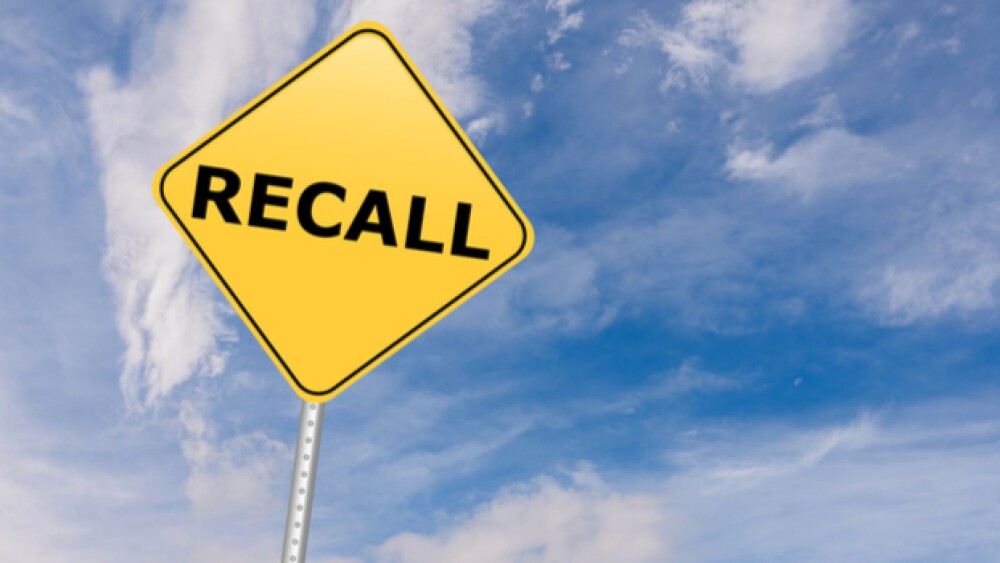From packaging errors and contaminants to serious adverse effects, there are many reasons why products in the life sciences industry get recalled. Here’s a look at some of the latest drug and medical device recalls.
From packaging errors and contaminants to serious adverse effects, there are many reasons why products in the life sciences industry get recalled. Here’s a look at some of the latest drug and medical device recalls.
Meithal Recalls Lot of Cisatracurium Mislabeled as Phenylephrine Hydrochloride
Meitheal Pharmaceuticals voluntarily recalled a lot of the injectable muscle relaxant cisatracurium besylate injection, following a packaging error that led to vials being mislabeled as phenylephrine injection, a blood pressure medication. According to the Institute for Safe Medication Practices, cartons containing the vials were correctly labeled.
The U.S. Food & Drug Administration (FDA) said that no adverse events have been reported to the company to date related to the lot. FDA added there is a “reasonable probability” a patient that does not receive the expected cisatracurium for muscle paralysis prior to surgery could end up in a hyperadrenergic state that resulted in death, if untreated.
Cisatracurium is also used to facilitate tracheal intubation as has been listed in FDA’s Drug Shortage Database as demand has increased during the COVID-19 pandemic.
Nostrum Laboratories Expands Metformin Recall
Nostrum Laboratories recalled another lot of metformin HCl extended-release tablets due to unsafe levels of N-Nitrosodimethylamine (NDMA), a probable human carcinogen. The company first recalled two lots of its 750 mg tablet type 2 diabetes medicine and two lots of its 500 mg tablets in November 2020, then an additional lot of the 750 mg tablets last month.
NMDA levels in metformin have been a concern since at least 2019, and Ranbaxy Pharmaceuticals Canada Inc. announced a recall of two metformin lots in February 2020. FDA first identified NMDA above the acceptable daily intake limit of 96 nanograms in U.S. products three months later.
Labeling Error Forces Apotex to Recall Enoxaparin
A customer complaint led to the discovery of a packaging mistake for Apotex Corp.’s enoxaparin sodium injections, where labels were found swapped on batches of 150 mg/mL and 100 mg/mL syringes. The company voluntarily recalled two batches, manufactured by Gland Pharma Limited.
Enoxaparin is a generic version of Lovenox, and is used to prevent deep vein thrombosis. No adverse events have been reported to the company in conjunction with the recalled batches.
Fresnius Kabi
Fresnius Kabi announced a voluntary recall of an additional lot of its ketorolac tromethamine injection after particulate matter was again identified in reserve sample vials. The company recalled 13 lots of the drug in April 2020 for the same issue. Kerolac is a nonsteroidal anti-inflammatory drug, and the company said particulate matter could obstruct and irritate blood vessels at the injection site, and potentially lead to life-threatening clotting, scarring, infections, or allergic reactions. Fresnius’s ketorolac was also compounded into other products by QuVa Pharma, which it also recalled last April.
According to Fresnius, no adverse events have been reported in relation to the latest lot recall.
Boston Scientific Recalls Two Cardiac Devices
Device marker Boston Scientific recalled two cardiac products, including a component of a cardiac defibrillator that FDA has classified as having “reasonable probability that the use of will cause serious adverse health consequences or death.” The implantable cardioverter defibrillator, S-ICD, is intended to provide pacing for heart rhythms., and the recalled component is a subcutaneous electrode at increased risk of fracture that renders the device unable to slow very fast heartbeats.
The recall covers 19,919 devices manufactured from 2016 to 2020. Affected customers were notified and instructed to work with their physicians to determine whether their device will need to be replaced. FDA considers this a Class I recall, the most serious category.
Boston Scientific also announced a global voluntary recall and product discontinuation of its aortic valve system, Lotus Edge, over product delivery issues. According to the company, the valve is not impacted by the recall and there are no known safety issues for patients with the implanted valves.
Penumbra Catheter Recall
Penumbra announced a Class I recall in December 2020 for 22,656 of its Jet 7 reperfusion catheters, those with “Xtra Flex” tips. FDA has received over 200 medical device reports associated with the products “including deaths, serious injuries, and malfunctions.” According to FDA, the tips can become damaged during use. The company has recalled all lots.
The catheters are designed to restore blood flow in patients experiencing acute ischemic stroke by removing clots via continuous aspiration.






